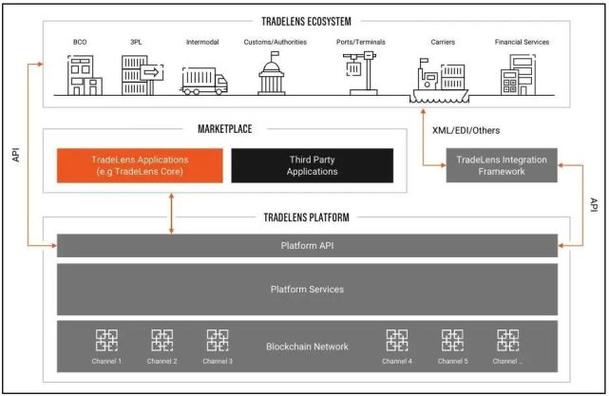区块链对国际贸易的影响
Introduction
The use of blockchain technology in international trade has gained significant attention in recent years. This report aims to provide an overview of the impact of blockchain on international trade, including its benefits, challenges, and potential future developments.
Benefits of Blockchain in International Trade
1. Transparency and Traceability: Blockchain provides a transparent and tamperproof record of transactions, which enhances the traceability of goods throughout the supply chain.

2. Reduced Paperwork and Costs: By digitizing trade documents and automating processes, blockchain can streamline trade operations, reduce paperwork, and lower transaction costs.
3. Enhanced Security: The decentralized nature of blockchain technology ensures that data is secure, reducing the risk of fraud and unauthorized access.
4. Improved Efficiency: Smart contracts and automated workflows can speed up transactions and settlements, leading to improved efficiency in international trade.
Challenges and Barriers
1. Legal and Regulatory Uncertainty: The lack of standardized regulations and legal frameworks for blockchain in international trade poses a significant barrier to widespread adoption.
2. Interoperability: Ensuring compatibility and interoperability between different blockchain platforms and systems is a complex challenge that needs to be addressed.
3. Scalability: As trade volumes increase, scaling blockchain networks to accommodate large numbers of transactions becomes a critical issue that requires further development.
4. Trust and Adoption: Building trust in blockchain technology and overcoming traditional mindsets present obstacles to its adoption in international trade.
Future Developments and Recommendations
1. Standardization and Regulatory Clarity: International organizations and governments should work towards standardizing regulations and providing clear guidelines for the use of blockchain in trade.
2. Interoperability Solutions: Industry collaboration and investment in interoperable blockchain solutions are essential for addressing the interoperability challenges in international trade.
3. Pilot Projects and Education: Encouraging pilot projects and providing education and training on blockchain technology can help enhance understanding and foster adoption within the trade community.
4. Scalability and Performance Improvement: Continued research and development efforts should focus on enhancing the scalability and performance of blockchain networks to support largescale international trade operations.
Conclusion
Blockchain technology has the potential to transform international trade by improving transparency, security, and efficiency. However, addressing the challenges and implementing the recommended actions are crucial for realizing the full benefits of blockchain in the global trade ecosystem.
版权声明
本文仅代表作者观点,不代表百度立场。
本文系作者授权百度百家发表,未经许可,不得转载。
















评论